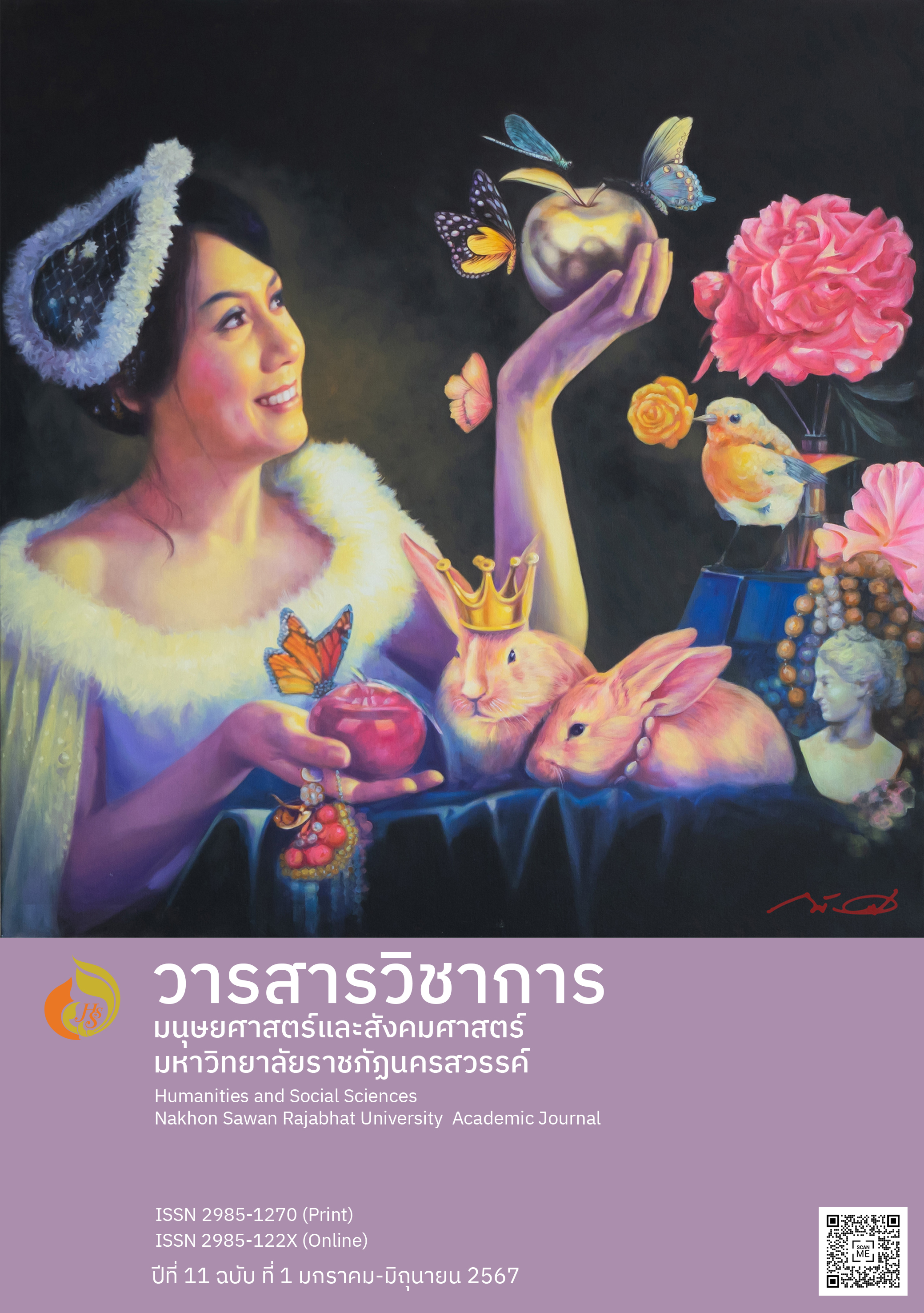Local Cultural Scenario within Sustainable Development
Main Article Content
Abstract
Academic articles explain the process of creating a local cultural scenario by looking at the future of changes that is expected to happen as local cultural within sustainable development. However, a sustainable development is balanced development and supportive interaction in economic, social, political, cultural and psychological, natural resource and environmental dimensions, based on knowledge and wisdom in collecting and organizing information, analyzing and synthesizing it to effectively benefit the local area. This article aims to analyze the local cultural scenario within sustainable development from document analysis, concepts, interviews with cultural and local knowledge experts, including sustainable cultural scenario framework, cultural capital in the local historical dimension, creation of identity based on art and culture in local architecture, culture's way of life with creative intellectual innovation in the integrative dimension of knowledge and developing effective learning processes of a reflection in thoughts, beliefs, way of life, customs and traditions on identity and value as local cultural within sustainable development.
Article Details

This work is licensed under a Creative Commons Attribution-NonCommercial-NoDerivatives 4.0 International License.
References
Agostinho,S., Meek, J.,& Herrington, J. (2005). Design methodology for implementation and evaluation of a scenario- based online learning environment. Journal of Interactive Learning, 16(3), 229-242.
Akin Rapeephat. (2008). Culture is meaning: Theory and Methods. Clifford Gears. Bangkok: Queen Sirindhorn Anthropology Center.
Bamrung Bunpanya. (2006). Community culture and sustainable development. Bangkok: Community Organization Development Institute.
Chanchai Jitlaoaporn, Jidapa Thirasirikul and Sakon Suksamphongchai. (2022). The Prime Minister's vision of youth development through the Children's Day slogan. Thai Academic Journal, Research and Management, 3(1), 21-33.
Chatthip Natsupha. (2011). Thai culture and social change movements. 3rd printing. Bangkok: Chulalongkorn University Press.
Clark, R. (2009). Accelerating expertise with scenario based learning. Learning blueprint Merrifield, VA: American Society for Teaching and Development.
Danai Nilsakul and Nopadon Thungsakul (2017). Sense of Place in Ubon Ratchathani Old Commercial District. Built Environment Inquiry Journal – BEI, 16(1).
Direk Patmasiriwat. (2004). Social capital and cultural capital. Dhamma in modern economics and management. Phitsanulok: Faculty of Management Science and Information Science Naresuan University.
Direk Patmasiriwat. (2008). Cultural capital and wisdom and value creation. Bangkok: Office of the National Economic and Social Development Board.
Erduran, A.D., & Bayrak, E. B. (2013). Investigating teacher candidates’ opinions related to scenario- based learning. An action research. Elementary Education online, 12(2), 528- 549.
International Institute for Trade and Development (Public Organization). (2016). Sustainable development. Bangkok: Institute.
Jiraphan Kanchanachitra. (2007). Community development. Bangkok: Ramkhamhaeng University.
Lowanichchai, S. ., Prachai, S. ., Chamnanphon, K. ., Rattanasuporn, J. ., Krongsrima, K. ., Chinjoho, P. ., & jongmuanwai, benjapuk. (2021). Land Use Maps Database System of Water Resources by Application a Smartphone to Smart Farmers’ 4.0. Humanities and Social Sciences Nakhonsawan Rajabhat University Academic Journal, 8(1), 13–27.
Nittaya Kanokmongkol. (2011). Life has a museum. Living museum of the Japanese people. Ancient City Journal, 37(1), 126.
Office of the National Economic and Social Development Board. (2016). Economic development plan and National Society, Issue 12 (2017-2021). Bangkok: Office.
Pinkaew Luengaramsri. (2011). Popular culture. Academic journal Faculty of Social Sciences: Chiang Mai University. 22 (1), 26- 37.
Pornchai Jedaman and Udon Orakul. (2018). Directions and paradigms of educational research for sustainable local development. Bangkok: Phaisan Builder Sutta.
Pornchai Jedaman. (2018). Philosophy of human resource and local development. Bangkok: Phaisan Builder Sutta.
Rangsan Thanapornphan. (2013). Cultural capital in the global capitalist system. Bangkok: Matichon Publishing House.
Srisakorn Valliphodom. (2008). Mue Chuk Khid: The meaning of cultural landscape. Inner education and local consciousness. Bangkok: Lek-Prapai Foundation Viriyaphant.
Sunida Kiatwattanawisan. (2022). Sufficiency economy philosophy towards sustainable development. Rattanakosin Journal of Social Sciences and Humanities, 4(3), 1-18.
Suthep Sunthornpharm. (2006). Anthropological knowledge. 4th printing. Bangkok: Phrae Wittaya Publishing House.
Thaipat Institute Rural Restoration Foundation of Thailand under the Royal Patronage. (2020). Sustainable development. Bangkok: Institute.
Thaweesak Sasongkroh. (2011). Intelligence and the creation of folk wisdom. Journal of the Institute of Culture and Arts. Srinakharinwirot University, 13(1), 27-37.
Wichai Thianthaworn. (2021).
Wimonsit Haryangkun. (2011). creating cultural heritage: towards the creation of modern Thai architectural identity. Journal of Architecture/Urban Planning Research and Substances, 8(1), 1-19.
Yongthanit Pimonsathian. (2011). Cultural heritage conservation. Government Housing Bank Journal, 17 (66), 28-35.


